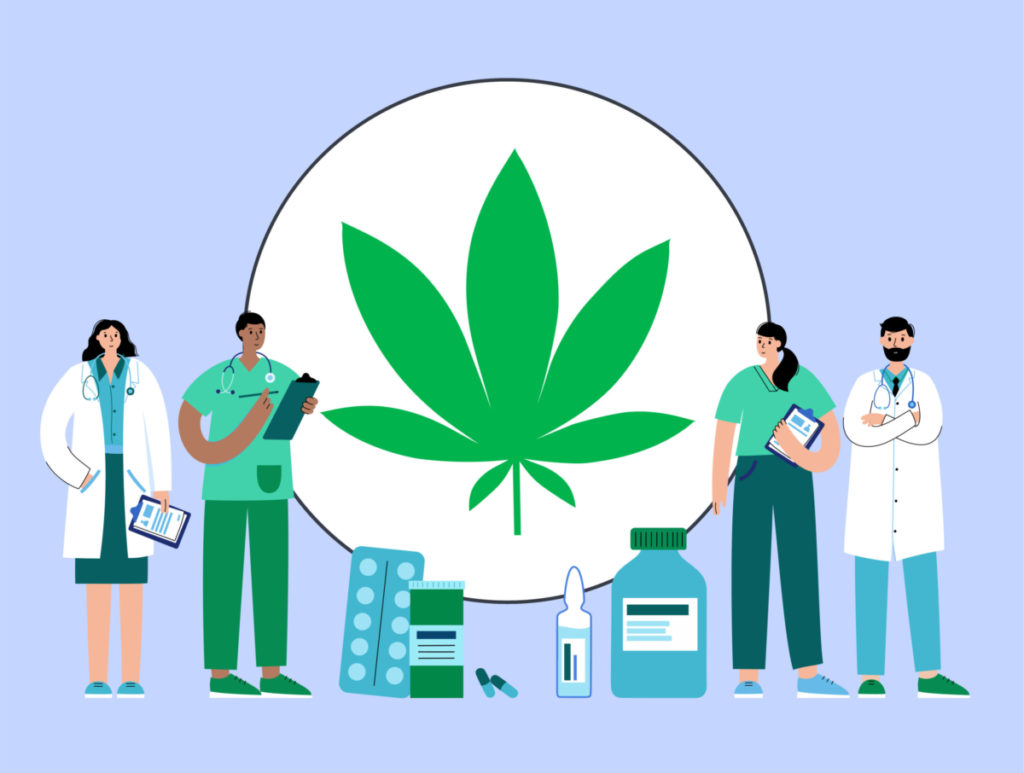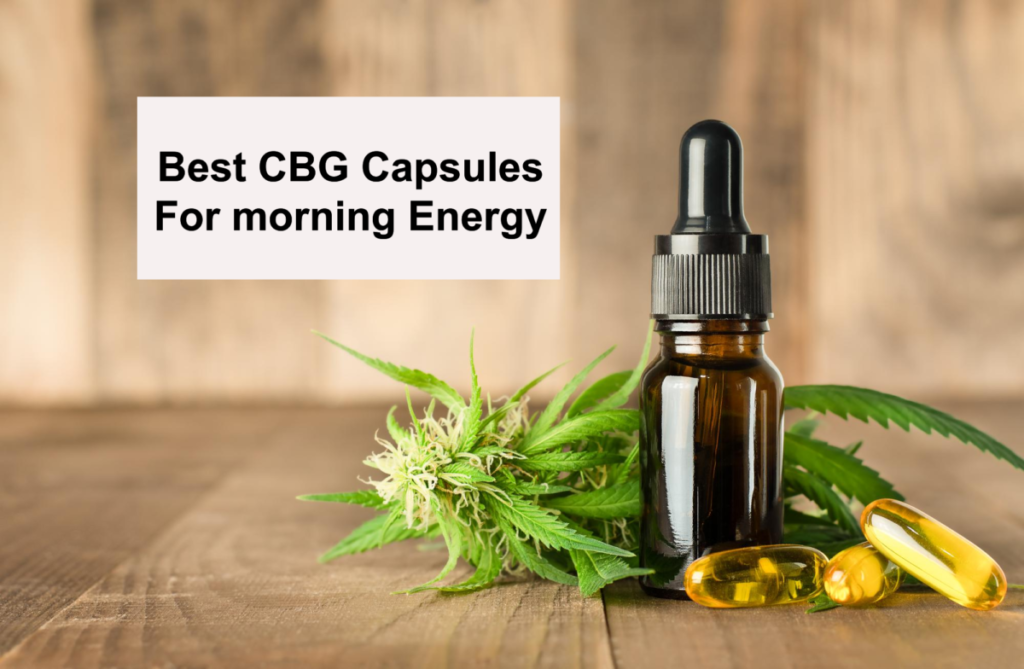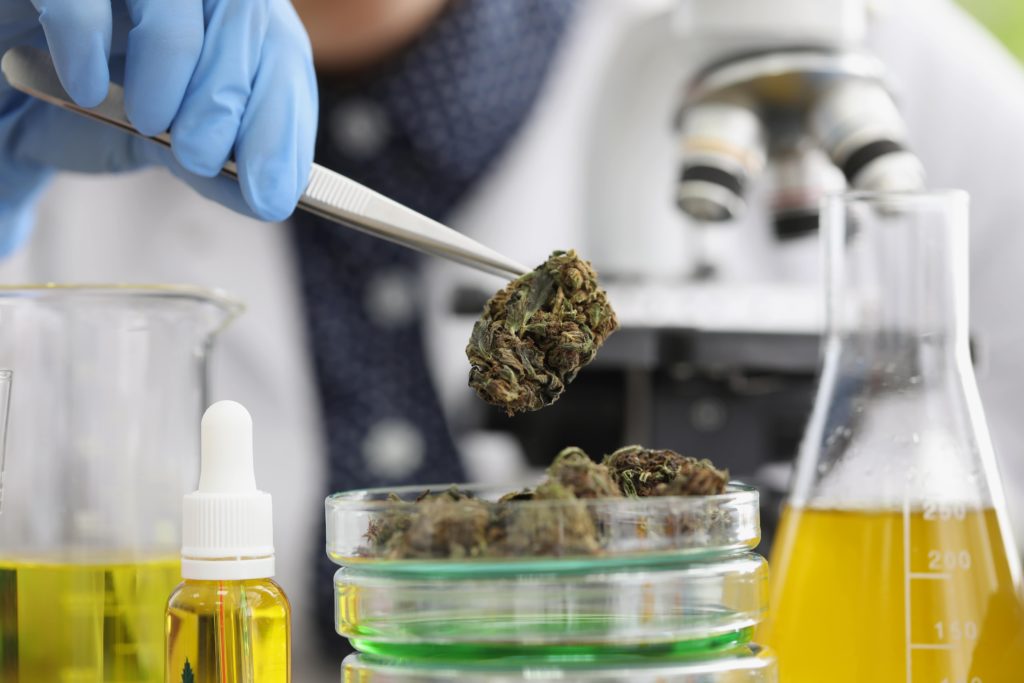Cannabis addiction, also known as cannabis use disorder, is a condition characterized by the compulsive use of marijuana despite negative consequences. It is estimated that around 9% of people who use marijuana will become addicted to it, and this number increases to 17% for those who start using marijuana in their teens.
Cannabis addiction can have a range of negative effects on a person’s physical, mental, and social health. These effects can include respiratory problems, memory impairment, poor academic or work performance, social isolation, and increased risk of mental health problems such as depression and anxiety. Additionally, addiction to cannabis can have negative impacts on relationships, finances, and overall quality of life.

What is CBG?
CBG (cannabigerol) is a non-psychoactive cannabinoid found in the cannabis plant. Like other cannabinoids, CBG interacts with the body’s endocannabinoid system (ECS) to produce a range of potential therapeutic effects. CBG is often referred to as the “stem cell” or “mother” of all cannabinoids because it is the precursor to other cannabinoids, such as THC and CBD.
Unlike THC, which is psychoactive and can produce a “high,” CBG is non-psychoactive and does not produce intoxicating effects. Similarly, CBG differs from CBD in its chemical structure and potential therapeutic effects. While CBD is primarily known for its potential anti-inflammatory and anxiolytic effects, CBG may have unique potential therapeutic properties, including anti-inflammatory, neuroprotective, and potentially anti-addictive effects.
Also Read: Best CBG Products To Try In 2023
The Endocannabinoid System and Addiction
The endocannabinoid system (ECS) is a complex cell-signaling system that plays a crucial role in regulating a wide range of physiological and cognitive processes, including mood, appetite, pain sensation, and addiction. The ECS is composed of endogenous cannabinoids (endocannabinoids), cannabinoid receptors (CB1 and CB2), and enzymes responsible for endocannabinoid synthesis and degradation.
CBG interacts with the ECS by binding to both CB1 and CB2 receptors, though with lower affinity than THC or CBD. CBG has been shown to inhibit the uptake of the endocannabinoid anandamide, allowing for increased levels of anandamide to remain in the body and potentially exert anti-inflammatory and analgesic effects. CBG can also modulate the activity of other receptors, such as the TRPV1 receptor and the 5-HT1A receptor, which are involved in pain sensation and anxiety, respectively.
In the context of addiction, the ECS has been implicated in the reward pathway and the development of addictive behaviors. CB1 receptors in particular are highly expressed in the brain regions associated with addiction, such as the ventral tegmental area (VTA), nucleus accumbens (NAc), and prefrontal cortex (PFC). By modulating CB1 receptor activity, CBG may be able to influence the reward pathway and reduce the reinforcing effects of drugs of abuse, potentially helping to counter addiction.
Also Read: Best CBG Gummies For The Immune System In 2023
CBG as a Counteractive Agent
Several studies have suggested that CBG has the potential in counteracting the effects of THC and helping individuals overcome cannabis addiction. One of the ways CBG can achieve this is through its interaction with the endocannabinoid system (ECS), which is known to play a key role in addiction and reward-seeking behavior.
CBG has been shown to have a weak affinity for the CB1 receptors in the ECS, which are primarily responsible for the psychoactive effects of THC. However, CBG has also been found to have an inhibitory effect on the activity of these receptors, which can help reduce the euphoric effects of THC and its potential for addiction.
Furthermore, CBG has been found to have an impact on the levels of dopamine in the brain, a neurotransmitter that plays a crucial role in reward-seeking behavior and addiction. Specifically, CBG has been shown to increase dopamine levels in the brain, which can help reduce the cravings and withdrawal symptoms associated with cannabis addiction.
Several preclinical studies have also investigated the potential of CBG as a treatment for addiction. A study published in the Journal of Neuroscience in 2015 found that CBG was able to reduce the consumption of alcohol in rats. Another study published in the journal Neuropsychopharmacology in 2018 found that CBG reduced the rewarding effects of cocaine in mice, suggesting that it could be effective in treating cocaine addiction.
Also Read: Best CBG Gummies For Pain Relief In 2023
CBG and Withdrawal Symptoms
Cannabis withdrawal symptoms can include anxiety, irritability, mood swings, insomnia, loss of appetite, and physical discomfort. Research suggests that CBG may be effective in alleviating some of these symptoms during cannabis withdrawal. A 2018 study published in the Journal of Clinical Psychopharmacology found that CBG, when administered in combination with CBD, was effective in reducing the severity of cannabis withdrawal symptoms in frequent cannabis users. Another study published in the Journal of Neuroscience in 2020 found that CBG was effective in reducing anxiety and improving mood in rats during cannabis withdrawal. While further research is needed to confirm these findings, they suggest that CBG may hold promise as a potential treatment for cannabis addiction and withdrawal.
CBG and Cravings
CBG has also shown promise in reducing cravings for cannabis, which is a common symptom of addiction. A study published in the Journal of Psychopharmacology found that CBG was effective in reducing the reinstatement of drug-seeking behavior in rats that were previously trained to self-administer THC. Another study published in the Journal of Addiction Medicine found that CBG reduced cue-induced reinstatement of cannabis-seeking behavior in rats. These findings suggest that CBG could be useful in reducing the urge to use cannabis in those with addiction. However, more research is needed in humans to confirm these effects.
Also Read: Best CBG Hemp Flowers In 2023 (Newly – Introduced)
CBG and Neuroprotection
CBG has been found to have potential neuroprotective effects in various studies. Neuroprotection refers to the preservation of neuronal structure and function and the prevention of neuronal damage caused by various factors, including addiction.
One study published in the Journal of Psychopharmacology in 2013 showed that CBG may protect neurons against toxicity caused by excess glutamate, a neurotransmitter that is released during addiction and can cause neuronal damage. Another study published in the journal Cannabis and Cannabinoid Research in 2018 showed that CBG may have the potential in treating neuroinflammation, a key component of addiction-related brain damage.
Furthermore, a study published in the journal Neuropsychopharmacology in 2016 showed that CBG can increase levels of brain-derived neurotrophic factor (BDNF), a protein that promotes the growth and survival of neurons and plays a crucial role in learning, memory, and other cognitive functions. This suggests that CBG may have a positive effect on cognitive function and may help counteract the negative effects of addiction on the brain.
Conclusion
cannabis addiction is a growing problem that affects many individuals. While traditional treatments for addiction have had some success, they are often accompanied by unwanted side effects. CBG, a non-psychoactive cannabinoid found in cannabis, shows promise as a potential treatment for cannabis addiction. By interacting with the endocannabinoid system and counteracting the effects of THC, CBG may help reduce withdrawal symptoms and cravings, and protect the brain against damage caused by addiction. While further research is needed to fully understand CBG’s potential as an addiction treatment, early studies suggest it could be a valuable tool in the fight against cannabis addiction.
Interesting Reads:
CBG And How It’s Helping To Fight Cancer



